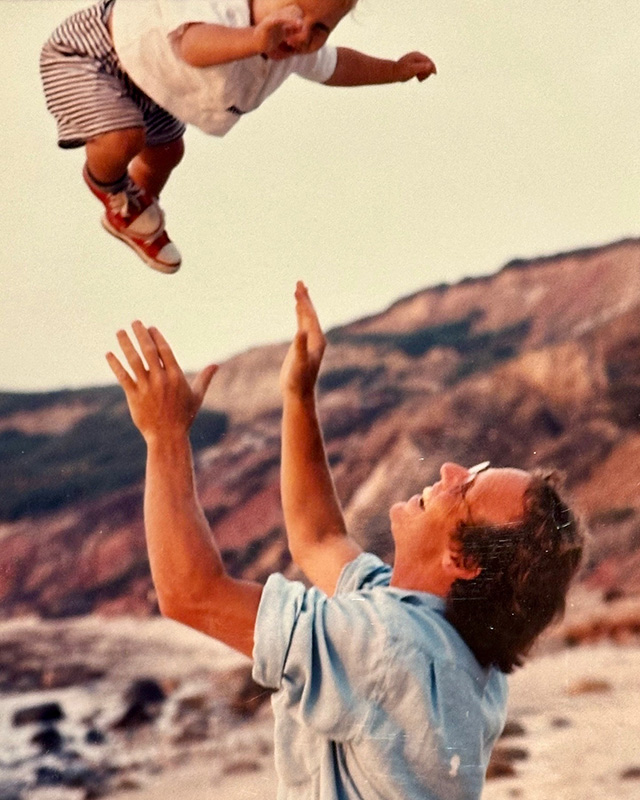Geraldine Brooks’ new memoir, Memorial Days, grew out of a tragedy and its aftermath.
When Ms. Brooks’ husband, the writer Tony Horwitz, died suddenly in 2019, she didn’t have much time to process the loss. Ms. Brooks leapt into the bureaucracy of autopsy reports, wills and health insurance. She planned the funeral and responded to condolences. But in the years that followed, she still hadn’t found the time to truly grieve.
“I was going through the motions of leading a normal life,” she said during a phone interview on a break from her book tour. “But I wasn’t really feeling normal in myself, and I needed to do something about it.”
She considered how to give herself the space to confront her pain.
“Then I had a kind of a light bulb moment,” she said.
The answer was in front of her, in a blank document with a blinking cursor.
“Well, you know, writers write,” she said. “That’s how I’ve always figured out what I think about things.”
Ms. Brooks, a journalist and Pulitzer Prize-winning author who grew up in Sydney and moved with Mr. Horwitz to Martha’s Vineyard in 2005, considered the life she almost lived, one where she didn’t meet Mr. Horwitz at Columbia’s School of Journalism. Ms. Brooks imagined that she could have followed some research interests and ended up on Flinders Island in Australia.
So, in February 2023, in search of time and solitude, she headed to this 500-square-mile island. She brought some of Mr. Horwitz’s journals and retraced both his death and their life together from a rustic, remote cabin with a view of the ocean.
Memorial Days is the product of this time.
“This was a book I wrote for myself,” Ms. Brooks said.
The memoir is an intimate account of love and loss, told in a propulsive woven narrative. Ms. Brooks recounts the days leading up to and following Mr. Horwitz’s abrupt death due to a heart condition. Mr. Horwitz died on the street in Chevy Chase, Md., not far from where he had grown up, and where he and Ms. Brooks had once lived. He was in the middle of a book tour for Spying on the South, his nonfiction exploration of America that would go on to become a New York Times bestseller.
Mr. Horwitz won a Pulitzer Prize in 1995 for National Reporting and was the author of several books, including Confederates in the Attic.
Ms. Brooks details the shock of receiving a phone call from the police telling her that her husband had died, and her efforts to contact their two children before word got out. She also describes the aftermath, trying to pick up the pieces on Martha’s Vineyard, and the subsequent years of grieving but not grieving.
On Flinders Island, she allowed it all to sink in.
In the book, she often looks to nature for perspective. At one point, Ms. Brooks honors a bird that dies from flying into her cabin window and then is consoled by the “dance” of the creatures that come to break down its body. She ponders the history of the boulders that stand tall on the nearby beaches.
“There is nothing like a geological timeline to put you in your place,” she writes.
And, when she needs it most, the ocean is there for her.
Ms. Brooks also considers the ways other cultures and religions create structure to demarcate the grieving process, like road signs that help a bleary-eyed traveler move forward during a bewildering time. At certain points, thoughts of what she could or couldn’t have done to change her and Mr. Horwitz’s fate creep in. All throughout, she shares candid frustrations, conflictions and regret, alongside moments of levity and hope.
The writing reveals Ms. Brooks’ experience as a journalist and a novelist.
“You have a certain toolbox that you build up as a reporter,” she said, including a skill of interrogating other people. “I guess I turned that skill on myself a little bit. And then, as a novelist I think being a writer of any kind is really being somebody who notices things ferociously.”
Although Ms. Brooks said she wrote the book because she needed it — and that part of the magic of being a writer is never knowing exactly how others will respond — it seems readers needed it, too.
“It’s been incredibly gratifying to hear from people who feel helped and who feel seen in the book,” she said.
Islanders may especially feel seen.
“So many people on the Island knew and loved Tony, so I’m sure it will be special for them to reconnect with him,” she said.
Mr. Horwitz and Ms. Brooks have been fixtures in the Vineyard community, although, according to Ms. Brooks, Mr. Horwitz was the extrovert.
“Social, monogamous, partial migrant, semiaquatic, congregatory,” she writes. “These adjectives might have described Tony. In fact, they are attributes of the Cape Barren goose . . .”
Some may remember Mr. Horwitz’s social, congregatory presence at what Ms. Brooks said was one of his favorite traditions, the summer Sundays softball game in Chilmark, and the “odd array of Island characters who showed up for it.”
After the game, he’d write “after-action reports” that heightened the players’ athleticism to heroic proportions. Mr. Horwitz eschewed talk of death but Ms. Brooks and her sons made sure to honor the one wish he did express: to have his ashes buried in that Chilmark field, cradled in his baseball mitt.
Ms. Brooks spoke of the way the Martha’s Vineyard community offered its support after Mr. Horwitz’s death. His obituary was published in newspapers far and wide, including in the Vineyard Gazette and received many comments, now totaling over 75. That outpouring of love “was a real comfort to me and my kids,” she said.
In what Ms. Brooks described as typical New England fashion, Islanders also offered solemn, wordless hugs in the grocery store and bags of fresh-caught fish, free of charge.
Sharing such a personal story has, at times, proven difficult for Ms. Brooks. Initially, she had planned not to do a book tour or any other promotion for this memoir.
“But then it occurred to me that it’s very much a book about Tony,” she said. “And I do love talking about Tony.”






